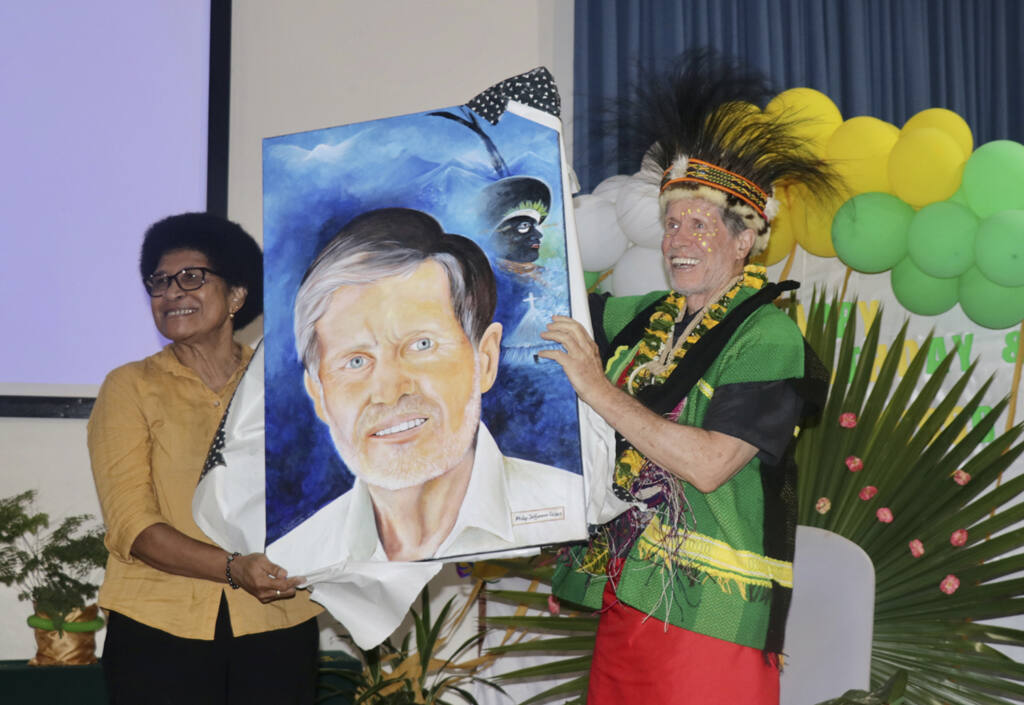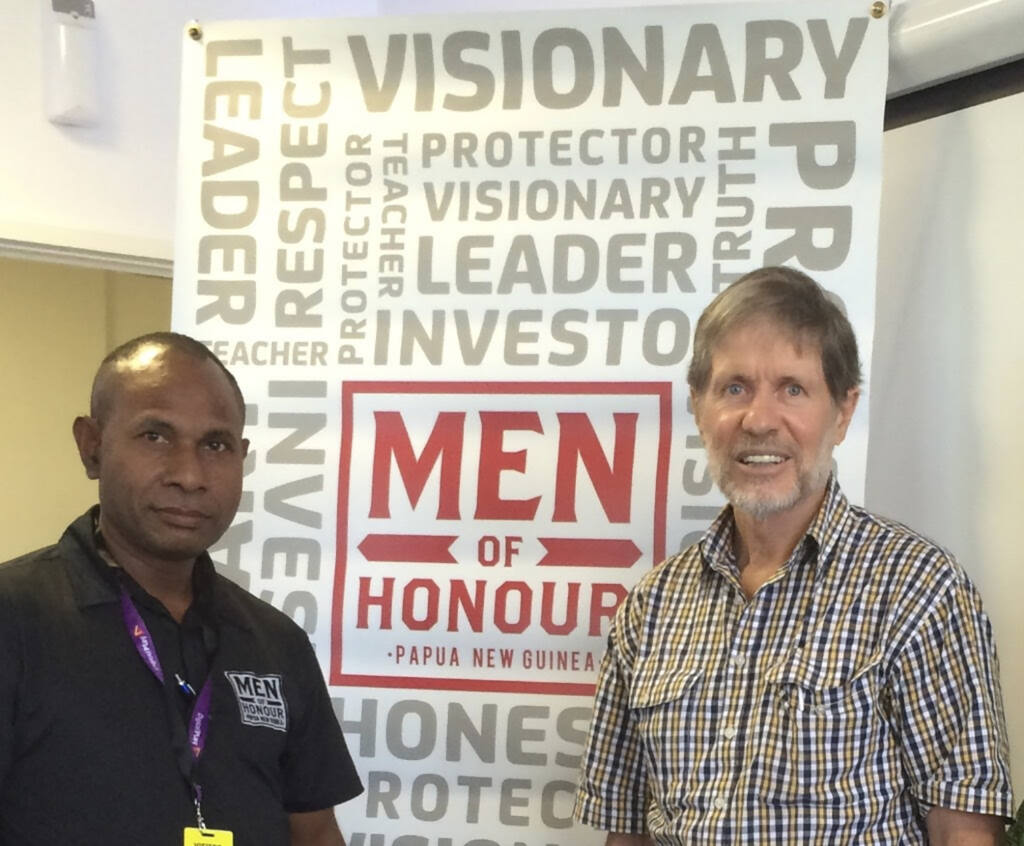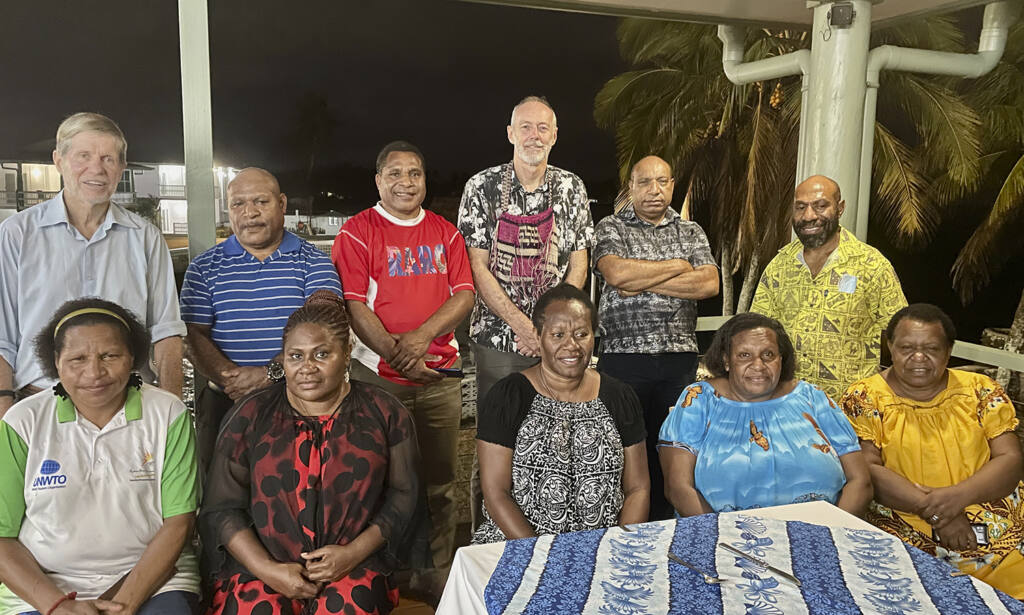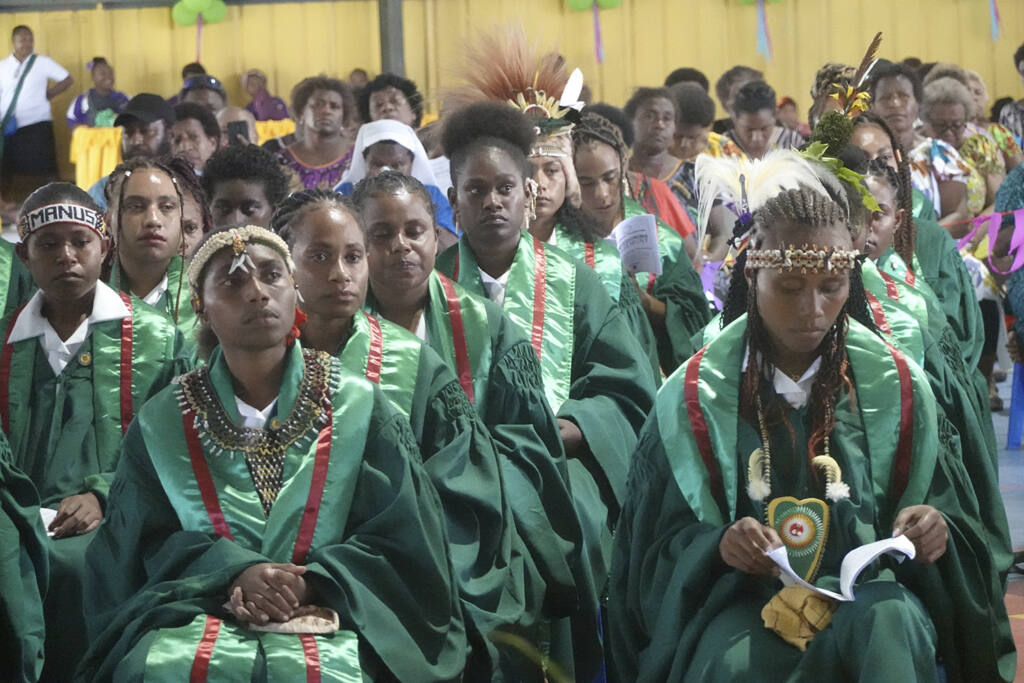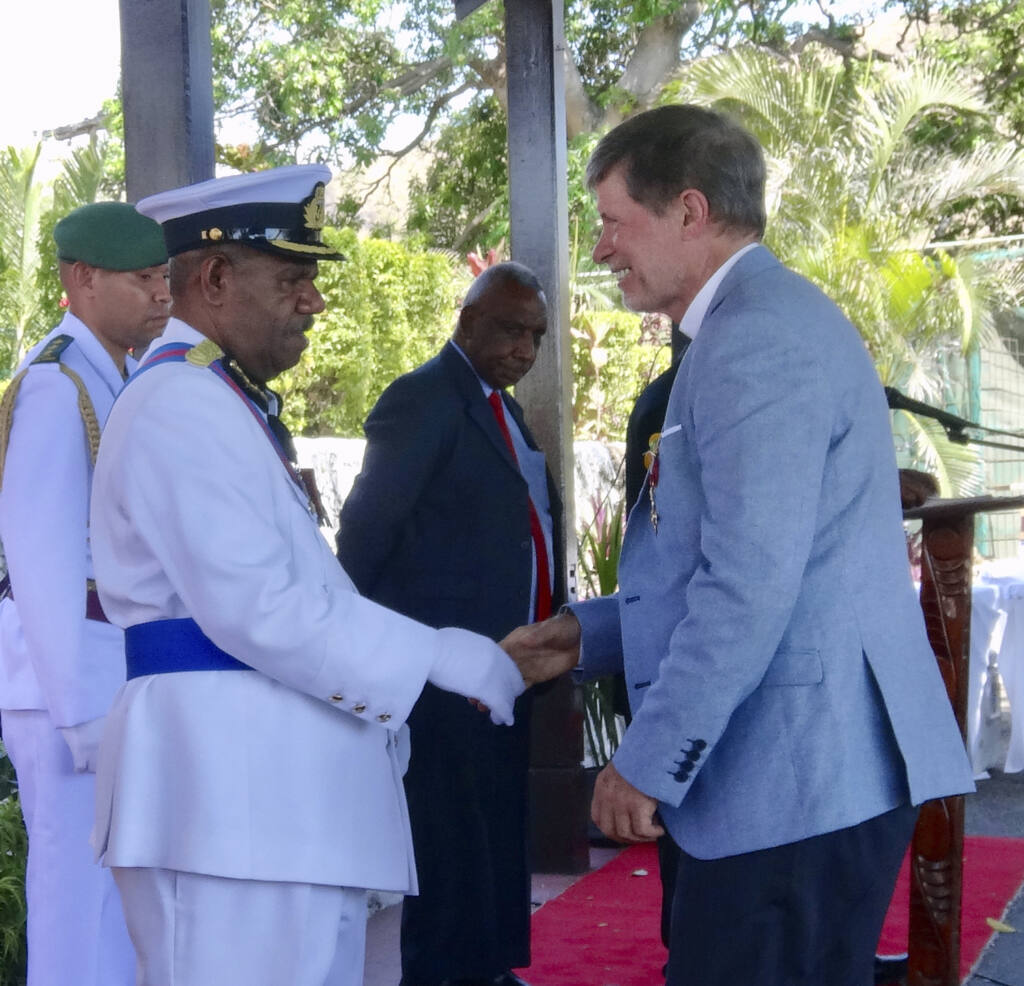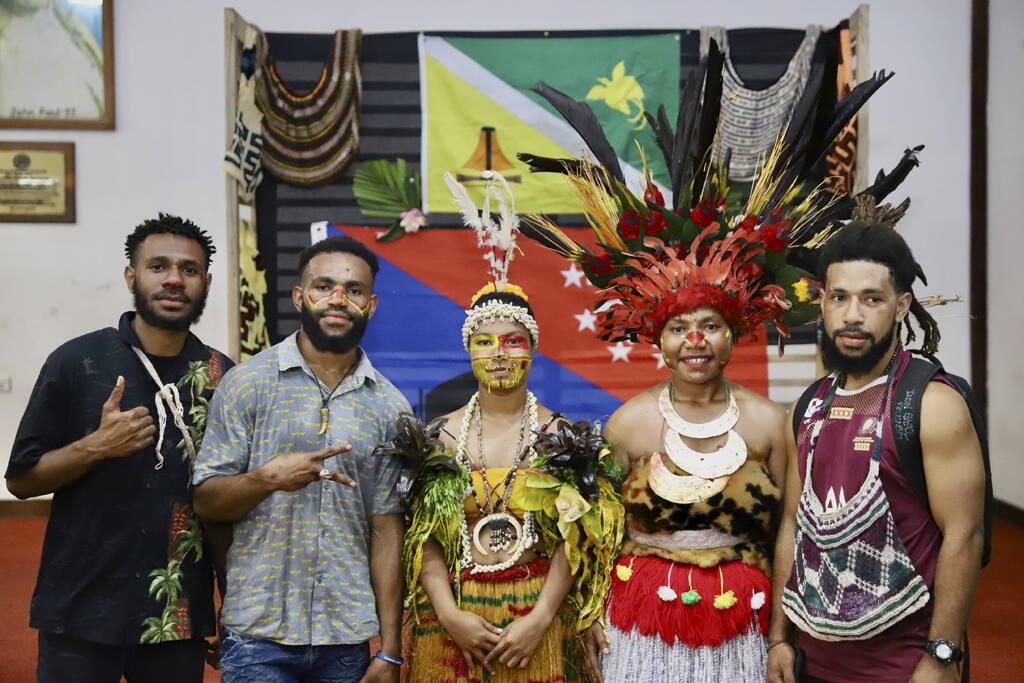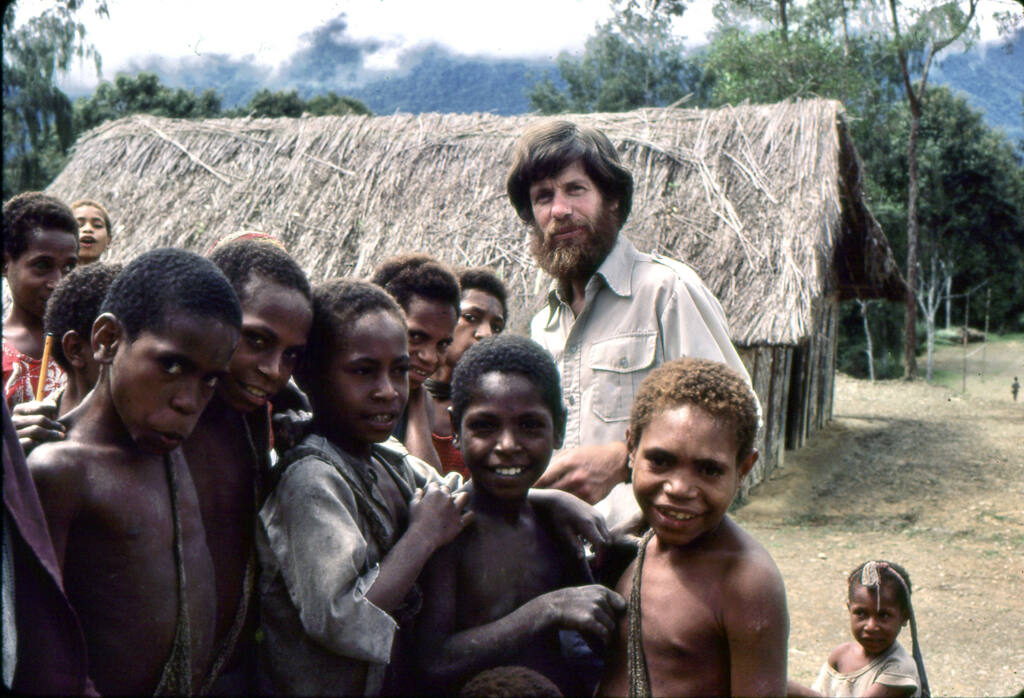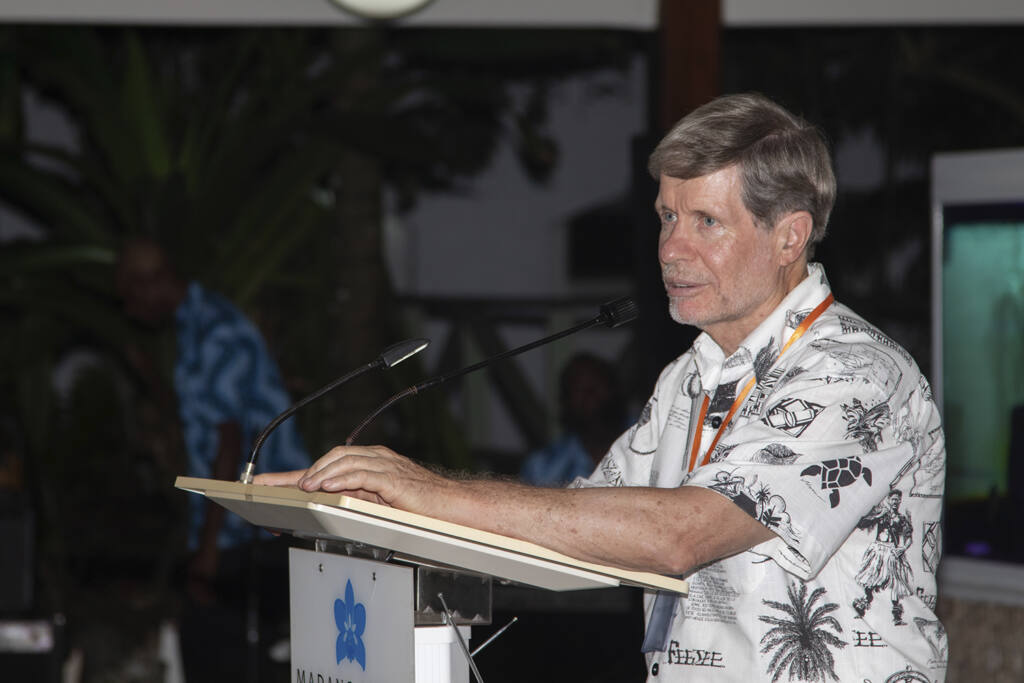WelCom February 2024
Fr Philip Gibbs SVD, OBE, President of the Catholic Divine Word University in Madang, Papua New Guinea, was visiting family in Lower Hutt over the summer break. He caught up with WelCom to talk about his missionary life as a priest of 50 years in PNG, and his work leading the university there. Through its Catholic faith-centred, integrated and holistic approach to educating ‘the whole person’, the university is transforming the lives of its students and their communities.
After leaving St Bernard’s College Lower Hutt in 1964, Philip began his studies at Holy Name Seminary in Christchurch. He completed a Bachelor in Sociology at Canterbury University in 1969 and a later Diploma in Anthropology at Sydney University in 1972.
He recognised his calling was for missionary work in Oceania, and in 1971 joined the Society of the Divine Word Missionaries (SVD) formation novitiate in Queensland.
After spending time in PNG as a student in the early 1970s Philip was ordained a priest in Hamilton in 1978. His first assignment was in the remote Porgera-Paiela region in the Western Highlands province of PNG where he was a parish priest.
‘I went to PNG in 1973 and have been there ever since,’ he says, ‘except for some time out in the mid ‘70s to study a Master in Theology in Chicago then later a Doctorate in Theology at the Gregorian University in Rome from 1989 to 1995.’
His studies led to several teaching roles and human rights work. He has been involved in research field work for HIV-AIDS and Sorcery Accusation Related Violence (SARV). In 2016, he was asked to take a research professor role at Divine Word University and three years ago he was appointed as President/Vice Chancellor. In 2019, Philip was awarded an OBE for his dedicated work with the people of PNG.
Philip considers it a challenge and a privilege being in charge at a young multicultural university in a developing country.
DWU was established in 1996 under the leadership of the Divine Word Missionaries. It has since become a leading tertiary institution in PNG with some 3500 students across its five campuses – Madang, Port Moresby, Rabaul, Wewak, and Tabubil.
Privately governed with some government support, the university is ecumenical and coeducational. It is committed to the integral human development of students and their communities in PNG and the Pacific Region.
‘Integral human development is the first of PNG’s national goals and directive principles in the Preamble to its Constitution,’ says Philip. ‘It reminds us of the importance of fostering community service, and development in the local community.
‘Our educational philosophy is embedded in Catholic values as stated in our charter: “The institution should be a Christian community based on love for all people for each other, because each is a child of God.”
‘The university provides for students’ intellectual as well as spiritual growth and development to prepare them as people ready and committed to contribute to national development, as well as Christian leadership for our country.’
Although DWU is a Catholic university, only a third of the students are Catholic so a lot of ecumenical work goes on among the students of other denominations to encourage them in their faith. Christianity is the faith majority in PNG.
DWU has faculties in business studies and informatics, medicine and health sciences and nursing, communication arts and media, education and preparation of committed teachers for PNG schools.
‘We have a special interest to advance opportunities for individuals from isolated rural communities to help build the economic and social capacity of the region.’
In a country with high levels of gender-based violence DWU also has a special interest in providing educational opportunities for women. Parents favour the university as a place where their daughters can grow and mature in peace, safety and respect.
‘Of more than 1800 students currently enrolled at the Madang campus, more than half are women, which is significant,’ says Philip.
‘We are taking a real stand in educating women but ensuring the students are safe. A lot of work is done in terms of respect of culture and gender differences. Male violence is not tolerated at the university.’
DWU also has number of ventures ‘outside the classroom’, for example courses and programmes for the wider public to sign up for online.
‘We are about to start a farm. We’ve got the land, but we’re starting from scratch and we need a farmer to work with us. A PNG farm is very different from New Zealand farm,’ says Philip. [If you can help, contact Philip at: gibbs199@gmail.com].
‘We also have a medical school, training and preparing doctors to teach in a developing country where they are expected to have universal standards. We graduate about 20 doctors a year.’
There is a very low ratio of doctors in PNG, therefore midwifery is very important since currently the maternal death rate is very high. ‘So we are also looking for people qualified to teach in a medical school.’
DWU has an agreement with the Fred Hollows Foundation that supports the eye-care programme with the academic standard required.
‘We train about 10 to 12 eye-care specialists every year,’ says Philip. ‘We recently opened a special facility for eye-care specialists to have highest level of training and accreditation standards.’
Other programmes train physiotherapists, doctors, environmental support workers and rural health officers, so people are skilled to go to the rural areas.
‘We want our students to be job ready, with a well-rounded education – although it can be a bit of a problem keeping them in the country as they graduate with universal qualifications that are highly sought after in other countries.
‘Our people do very well. PNG’s future will be found in its well-educated young people performing and contributing to positions into the future.’
Philip has just been appointed by his Religious Congregation with another three-year term at Divine Word University. He says he has plenty to do in PNG, developing and supporting his students – as well as pursuing his interests in filmmaking and photography.
